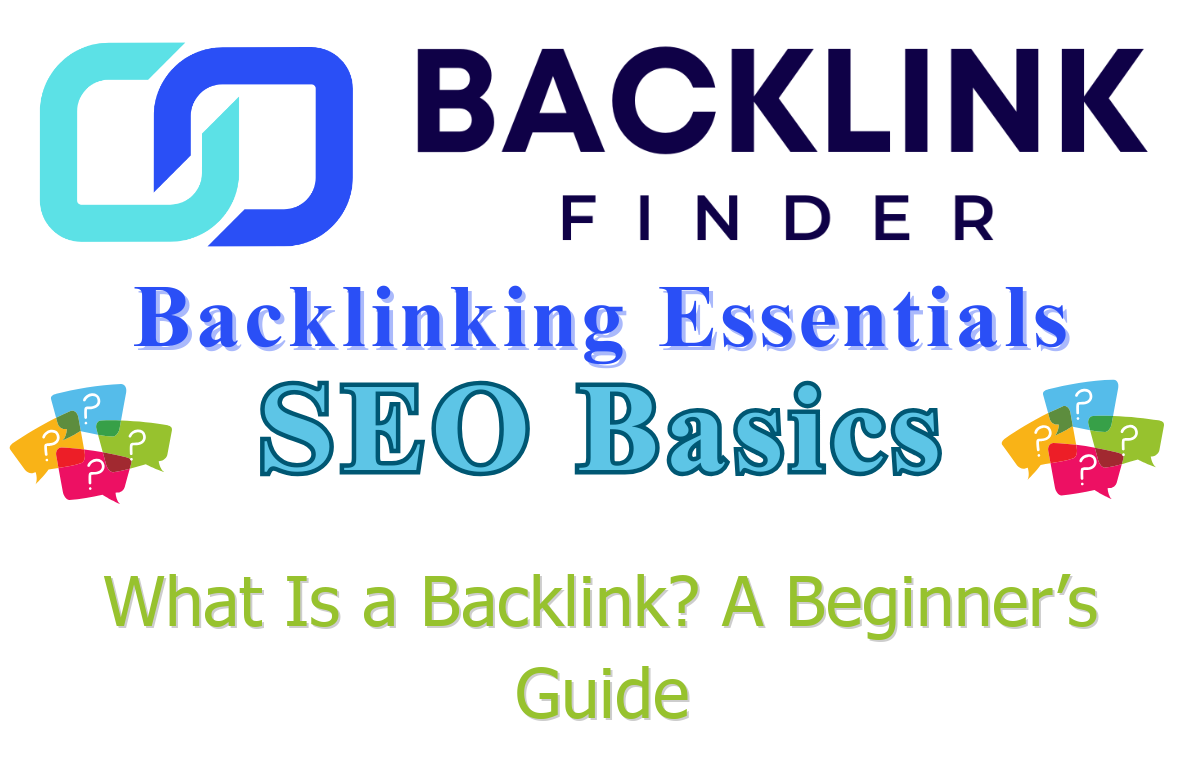What Is a Backlink? A Beginner’s Guide

Starting your SEO journey can feel overwhelming, but one term you’ll hear often is backlink. What is a backlink, and why does it matter? This beginner-friendly guide explains backlinks in simple terms, covering what they are, why they’re important for your website, and how to start building them. Whether you’re launching a blog or a small business site, understanding backlinks is a key step to boosting your visibility on search engines like Google.
What Is a Backlink?
A backlink is a link from another website to yours. Think of it as a vote of confidence: when a site links to you, it’s like saying, “This content is worth checking out.” In SEO, backlinks act as endorsements, telling search engines your site is trustworthy and relevant.
Simple Analogy: Imagine backlinks as recommendations. If a friend suggests a great restaurant, you’re more likely to try it. Similarly, if a reputable website links to yours, search engines are more likely to rank it higher.
Types of Backlinks
Not all backlinks are the same. Here are the main types beginners should know:
- Dofollow Backlinks: These pass SEO value, helping your rankings. For example, a link from a niche blog to your guide boosts your authority.
- Nofollow Backlinks: These don’t directly affect rankings but drive traffic. Social media links are often nofollow.
- Editorial Backlinks: Earned naturally from high-quality content, like a news site linking to your research.
Example: A dofollow link from a fitness blog to your “Healthy Recipes” page helps your ranking, while a nofollow link from a Twitter post brings visitors.
Why Backlinks Matter for SEO
Backlinks are one of the top factors search engines use to rank websites. Here’s why they’re crucial:
- Boost Rankings: Backlinks signal to Google that your site is credible, pushing it higher in search results.
- Increase Traffic: Links from active sites bring visitors directly to your pages.
- Build Authority: Quality backlinks from trusted sources make your site a go-to in your niche.
- Improve Discoverability: Backlinks help search engine crawlers find and index your site faster.
Example: A blog with 10 backlinks from reputable SEO sites will likely rank higher for “SEO tips” than one with none.
How Backlinks Affect Your Site
Backlinks work like a network of trust. The more quality links you have, the stronger your site’s SEO foundation. But quality beats quantity:
- Relevance: A backlink from a related site (e.g., a tech blog linking to your software review) carries more weight.
- Authority: Links from high-authority sites (like Forbes) are more valuable than low-quality ones.
- Diversity: A mix of backlinks from blogs, forums, and directories looks natural to search engines.
Tool Tip: Getting started with backlinks is easier with Backlink Finder. Its 400,000+ marketplace listings connect you to guest post opportunities in your niche, helping you build quality links without the guesswork.
Backlinks remain a core SEO signal. Quality over quantity—focus on relevant, trustworthy links to build authority that lasts. https://t.co/QpXz7mW9kL— Cyrus Shepard (@cyrus_shepard) November 17, 2021
How to Start Building Backlinks
As a beginner, you can build backlinks without advanced skills. Here are simple ways to begin:
- Create Great Content: Write helpful posts, like “Top 10 Blogging Tips,” that others want to link to.
- Guest Posting: Contribute articles to blogs in your niche, including a link to your site.
- Engage Online: Share your content in forums (e.g., Reddit) or social media, linking back where allowed.
- Reach Out: Email site owners with a polite pitch to link to your content if it fits their audience.
Example: Writing a guest post for a marketing blog and linking to your “SEO Guide” can earn a dofollow backlink, boosting your rankings.
Common Backlink Mistakes to Avoid
Steer clear of these pitfalls to keep your SEO on track:
- Low-Quality Links: Avoid spammy sites; one good backlink is worth more than 100 bad ones.
- Over-Optimization: Don’t use the same keyword (e.g., “SEO guide”) in every link; mix it up.
- Ignoring Nofollow: These links still bring traffic, so don’t dismiss them.
As Cyrus Shepard notes, focusing on quality, relevant backlinks builds lasting authority.
Further Reading
- Moz: Introduction to Backlinks
- Ahrefs: What Are Backlinks?
- Search Engine Land: Beginner’s Guide to Link Building

